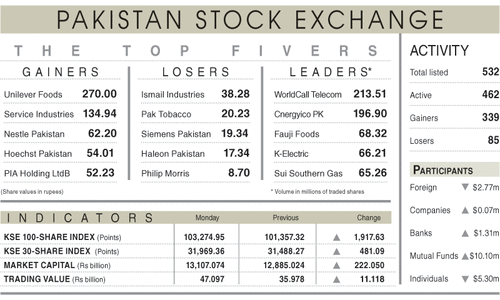LONDON, Nov 16: Opec's second biggest producer Iran believes the cartel needs to cut production back to quota levels to bolster falling prices for its lower-quality crude supply, an Iranian oil official said on Tuesday.
Oil prices have tumbled 15 percent from record highs in the last three weeks as Opec pumps near the highest level for 25 years, helping to replenish consumer inventories.
Opec's high sulphur, or sour, grades of crude oil have sunk even faster than international benchmarks. The cartel's reference crude oil basket has fallen to its lowest level since mid-July at $36.11.
"We are cautioning producers to be more vigilant and fully adhere to quotas," an Iranian oil official told Reuters. "As far as heavy sours, it has already gone too far."
The 10 Opec members with quotas pumped 27.89 million barrels per day (bpd) in October, 890,000 bpd above a ceiling that came into force on November 1, a Reuter's survey found.
"All those who stood to compensate from additional barrels in the market should now review their production," the official said. "Members should think of trimming production to the level of quotas." U.S. crude was up 33 cents at $47.20 a barrel on Tuesday.
Iran produced 3.97 million bpd in October, almost exactly in line with its new Opec quota of 3.964 million bpd.
Top world exporter Saudi Arabia has led Opec's production surge, pumping 9.58 million bpd in October, some 1.13 million bpd above its October quota and 805,000 bpd above its new November quota.
Opec's production surge, as well as improved supply from Iraq and rising output from Russia has created a glut of heavy, sour crude - disliked by refiners because it produces too much low-value heavy fuel and not enough transport and heating oil.
This has forced producers to slash their official selling prices to record discounts against international benchmarks. Iran was forced to cut its December differential for Iran Heavy in the Mediterranean by $3.15 to minus $13.60 a barrel.
Gulf members the UAE and Kuwait are also producing over quota, as are Algeria and Libya, who both want a higher quota to reflect their expansion in production capacity.-Reuters













































Dear visitor, the comments section is undergoing an overhaul and will return soon.